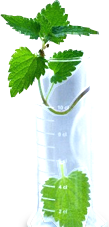



Author(s): Oyeyemi Matthew Olugbenga, Olukole Samuel Gbadebo*, Ajayi Tolulope Adeoye
Twelve sexually matured West African Dwarf (WAD) bucks were used to investigate the variation in haematological parameters using two different concentrations of Aloe vera extract. The bucks were first used as control (pre-treatment) and later as two treatment groups of six animals each. The first six bucks received 10 millilitres of the 3 % extract while the other six received 10 millilitres of the 4 % of the extract for a 7 day period. Blood was collected from both the 3 % and 4 % extract treated bucks for the control (pre-treatment), on days eight (first week post-treatment) and fifteen (second week post-treatment) in each case. For the 3 % dosed bucks, there was no significant difference (P > 0.05) between the mean values of WBC during pre-treatment and first week post-treatment. However, there was a significant difference (P < 0.05) between the mean values of WBC during pre-treatment and second week post-treatment. The 4 % dosed bucks showed no significant difference (P > 0.05) between the mean values of WBC and MCH during pre-treatment and first week posttreatment. There was a significant difference (P < 0.05) between the mean values of MCHC during pre-treatment and first week post-treatment. There was also a significant difference (P < 0.05) between the mean values of MCHC during pre-treatment and second week post-treatment. It can be concluded that the continued administration of Aloe vera extract has adverse effects on the haematological parameters of WAD bucks and should therefore be discouraged in the husbandry practices of livestock especially in WAD bucks.